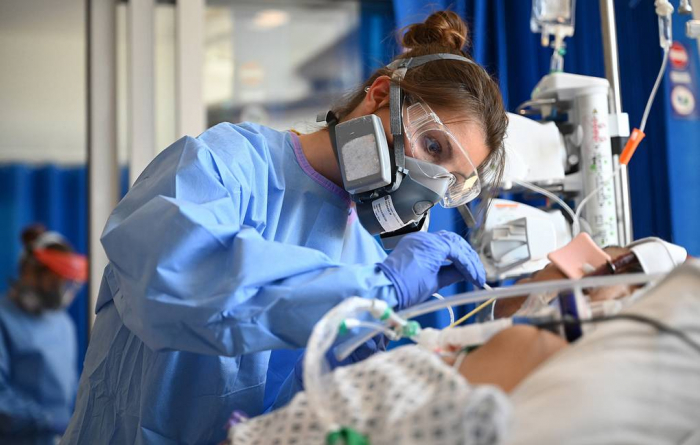The optimistic assessments came as the global concern grew over the heavily mutated variant, which has forced dozens of nations to reimpose border restrictions and raised the possibility of a return to economically punishing lockdowns.
While it is likely more transmissible than previous variants, "the preliminary data don't indicate that this is more severe," the WHO's second-in-command told AFP.
"In fact, if anything, the direction is toward less severity," WHO emergencies director Michael Ryan said in an interview on Tuesday, insisting though that more research was needed.
Ryan also said it was "highly unlikely" that omicron could fully sidestep protections provided by existing COVID-19 vaccines.
"We have highly effective vaccines that have proved effective against all the variants so far, in terms of severe disease and hospitalization ... There's no reason to expect that it wouldn't be so for omicron," he added, pointing to initial data from South Africa, where the strain was first reported.
However, Ryan acknowledged that it was possible that existing vaccines might prove less effective against omicron, which counts more than 30 mutations on the spike protein that dots the surface of the coronavirus and allows it to invade cells.
Top U.S. scientist Anthony Fauci echoed the WHO's view, saying omicron did not appear worse than prior strains based on early indications – and was possibly milder.
The new variant is "clearly highly transmissible," very likely more so than Delta, the current dominant global strain, Fauci told AFP.
"It almost certainly is not more severe than Delta," he said. "There is some suggestion that it might even be less severe."
But he noted it was important to not over-interpret the data because the populations being followed skewed young and were less likely to become hospitalized. Severe disease can also take weeks to develop.
"Then, as we get more infections throughout the rest of the world, it might take longer to see what's the level of severity."
The detection of the first omicron cases two weeks back coincided with surges in infection numbers across the world, and the variant added fuel to the concerns about a global COVID resurgence.
Omicron has so far been found in 57 countries around the world, the WHO said. No deaths have yet been associated with the variant.
















































